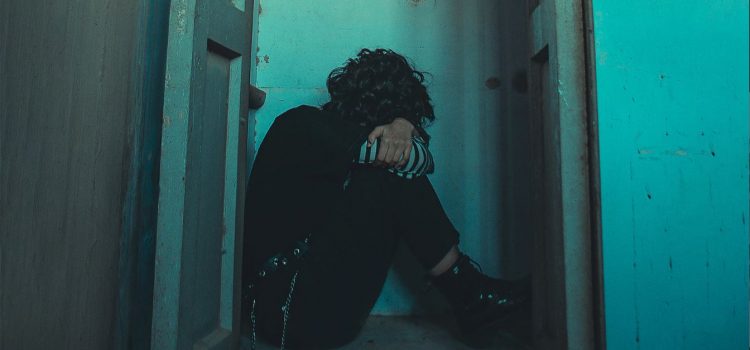

This article is an excerpt from the Shortform book guide to "If You Tell" by Gregg Olsen. Shortform has the world's best summaries and analyses of books you should be reading.
Like this article? Sign up for a free trial here.
What’s the relationship between Michelle Knotek and Shane Watson? How did Michelle (Shelly) manipulate Shane until his death?
Shane Watson didn’t know what he was in for when he came to live at his aunt’s house. According to Gregg Olsen’s book If You Tell, it didn’t take long until Shelly began humiliating Shane to the point she had her husband kill him.
Below we’ll examine the life and death of one victim of Michelle Knotek, Shane Watson.
Shane Watson’s Arrival: A New Target
In 1988, a new member of the family came to live with them at age 13: Shane Watson, Michelle Knotek’s nephew. His parents were unable to take care of him, and Shelly sent him loving letters saying she wanted to help him.
The girls loved Shane and viewed him as a brother. Shelly set him up with a bedroom in the basement, but not long after he arrived, she put him to work around the house and yard. She began subjecting him to abuse as well, first confiscating his things as punishment until he was forced to sleep pillowless on a mattress on the floor, then restricting his shower and bathroom access. When the family moved to a smaller house, he had no room at all and had to sleep in Nikki’s closet with nothing but a blanket.
Many of Shelly’s punishments were about power and humiliation rather than pain, and sometimes she forced Shane and Nikki to slow dance together nude in the living room. Another time, she forced them to strip naked in the freezing cold and sit back to back on a hilltop until it was dark out.
Shane came to hate Shelly, and he and Nikki confided in each other about their suffering. They fantasized about killing her by throwing a radio into her bath, but Nikki always held onto the hope that her mother might one day miraculously turn back into the loving parent she’d been in her early childhood before the abuse began. Despite his hatred of her, Shane also felt some attachment to her since he’d never had a mother figure before her.
(Shortform note: While Nikki and Shane’s fantasies about killing Shelly might be understandable given the circumstances, a look at legal protections at the time suggests that they would have been at high risk of being convicted of murder had they acted on these desires. In 1992, an estimated 90% of all parricides (murder of a parent by a child) in the US were cases of severe child abuse. However, a vast majority of child defendants in such cases were convicted of murder or manslaughter, with average prison sentences ranging from 15 to 20 years. Because these killings are usually committed in non-confrontational situations where the child isn’t in imminent danger, some argue that self-defense is not a valid justification.)
The Murder of Shane Watson
According to Olsen, soon after Kathy Loreno’s death in the same house, Shelly decided that if any of the family told anyone what had happened, they would pin all the blame on Shane. Shelly felt convinced that Shane was going to tell someone, and she began relentlessly pestering Dave to kill him. Dave insisted Shane wouldn’t tell on them because he was family.
Shane desperately wanted to escape, and he planned to take Nikki with him. One day, he showed her some photos he had of Kathy shortly before she died and told Nikki they needed to show them to the police. Nikki agreed, but she was terrified of what would happen if they did. In a moment of weakness, she told her mother about the pictures Shane had. The guilt from this admission haunts her to this day.
(Shortform note: Nikki’s actions may seem unconscionable, but, in fact, children of abusive parents usually have strong emotional attachments to the abuser on a neurobiological level, which makes the idea of change—like escape from the abusive situation—terrifying. Even when the parent causes the child immense harm, the child usually loves the parent and doesn’t want them to suffer. Despite all Shelly had done, on some level, Nikki didn’t want her mom to be arrested.)
Shelly flew into a panic and searched the house relentlessly for the pictures but never found them. She and Dave beat Shane badly to get him to confess that he was going to tell on them, but he insisted he wasn’t.
Then in February 1995, Dave killed Shane. Shane had been confined to one of the outbuildings when Dave entered and shot him in the head with a rifle. While all three girls went to stay overnight with friends—something they were rarely allowed to do—Dave burned Shane’s body in the yard as he’d done with Kathy. They told the kids that Shane went to Alaska to work on a fishing boat. Though they suspected this was a lie, the girls didn’t learn that Shane was dead until years later when their parents were caught and Dave confessed. And with Shane and Kathy gone, the brunt of Shelly’s abuse was again directed at Nikki.
(Shortform note: Some readers may take issue with Olsen’s treatment of Dave Knotek. Despite Dave’s participation in Shelly’s crime and his murder of Shane Watson, Olsen writes about Dave in a way that seems to somewhat excuse him from culpability. This may be because (as we’ll discuss later) Dave confessed to his crimes, because he, too, was a victim of Shelly’s abuse, because he willingly contributed to the writing of Olsen’s book, or because he was eventually forgiven by Tori and Sami. But in any case, Dave Knotek murdered his nephew and assisted in the abuse of his children and the murder and disposal of two other people.)

———End of Preview———
Like what you just read? Read the rest of the world's best book summary and analysis of Gregg Olsen's "If You Tell" at Shortform.
Here's what you'll find in our full If You Tell summary:
- The true story about abusers and murderers Shelly and Dave Knotek
- The events leading up to Shelly and Dave's arrests and convictions
- A look into the psychology of abuse and psychopathy






